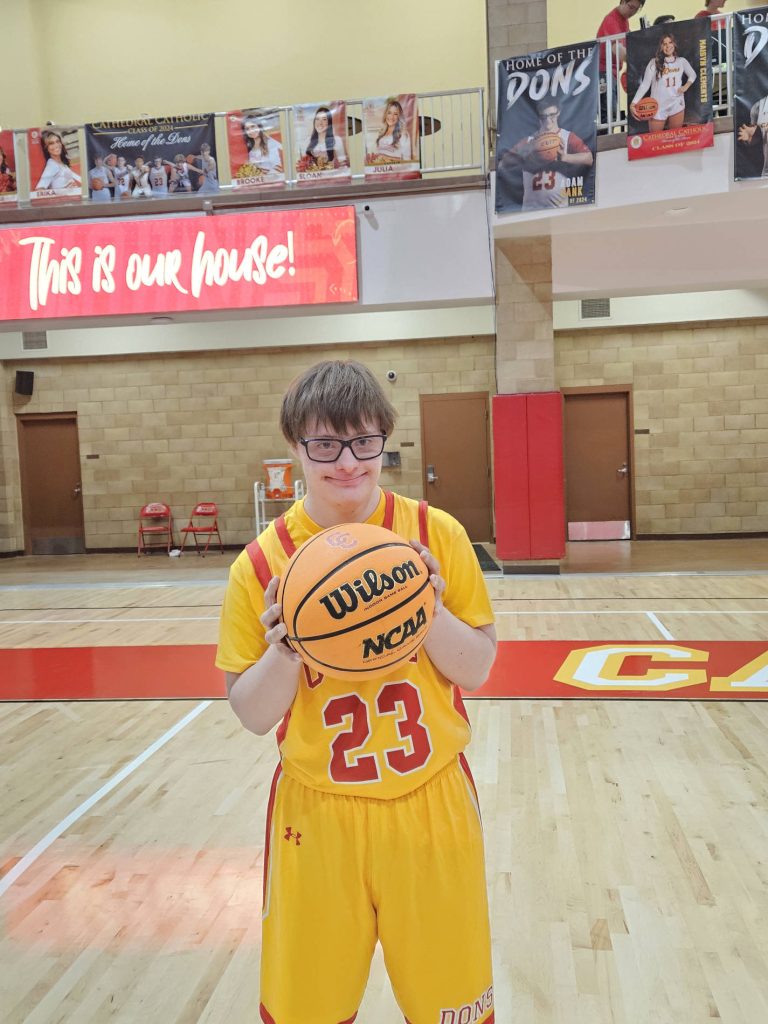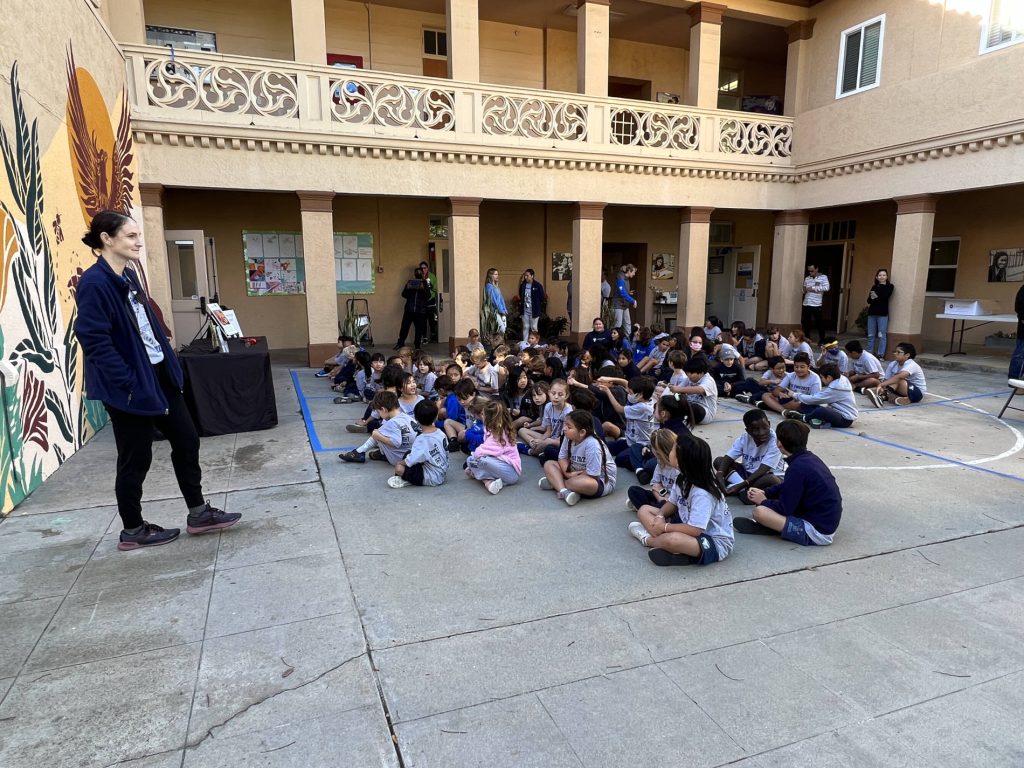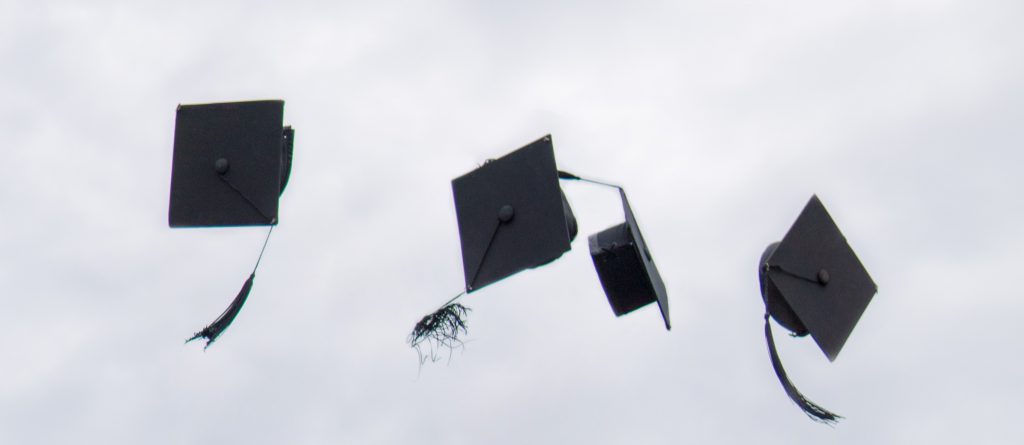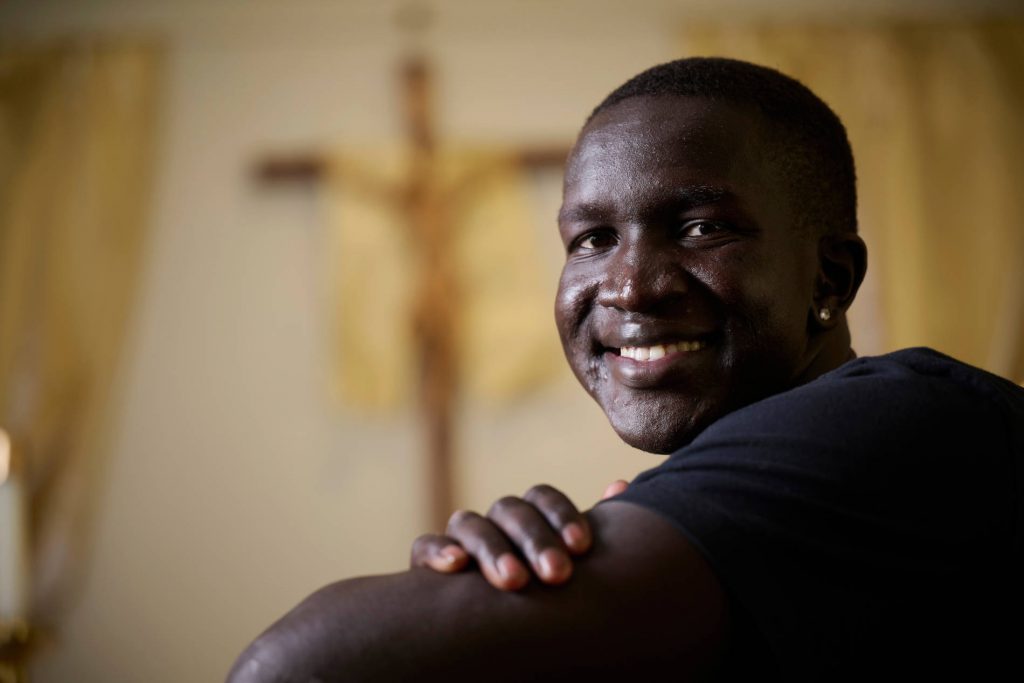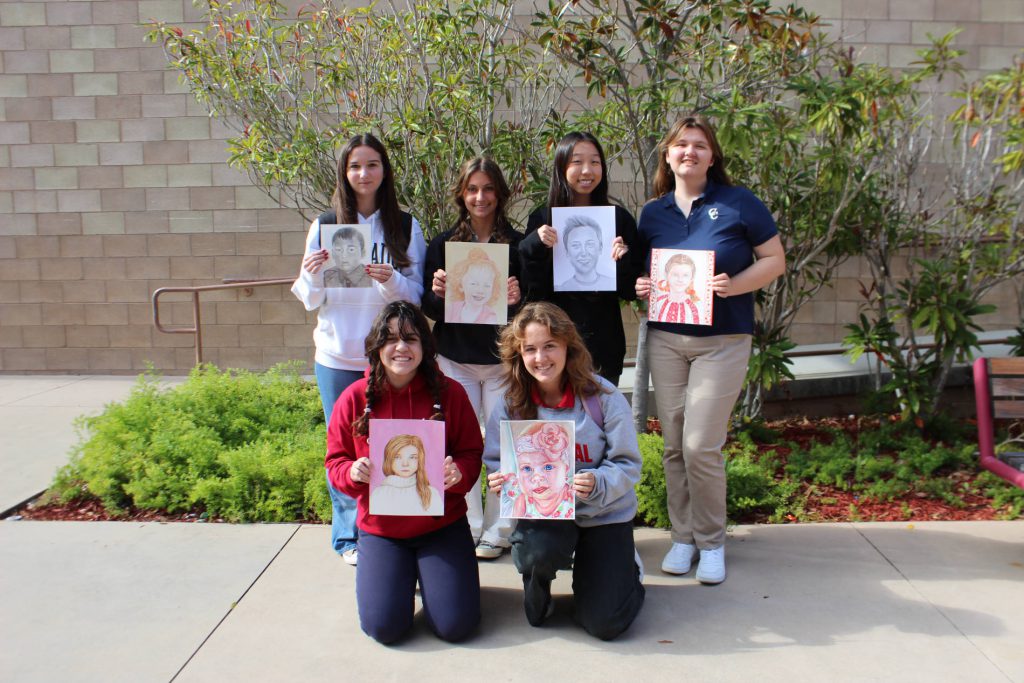By Angelina Hicks
San Diego Mesa College student Elizabeth Gravitt, who suffers from asthma, has participated in four protests to support the Black Lives Matter movement.
“I have been risking a lot by going out,” Gravitt said. “I don’t know if my lungs are strong enough if exposed to COVID-19 or teargas. I’m torn, but I want to go and help.”
Gravitt is one of the tens of thousands of people in San Diego and across the nation protesting police brutality and demanding racial justice in the wake of the killing in May of 46-year-old George Floyd in Minneapolis by a white police officer.
Among those marching are young Catholics who see the protests as way to live the values of Catholic social teaching, which calls for respecting the sacredness and dignity of the human person, regardless of skin color or nationality, and for pursuing justice and peace for all people. According to Catholic News Service, bishops, priests, and laity have increasingly joined Black Lives Matter protests.
Gravitt participated in protests near Balboa Park, downtown San Diego, North Park, and Escondido. Protesters have walked the streets and even blocked off freeways across San Diego County since Floyd’s death, including student protests to defund police and remove officers from San Diego public school campuses.
The June 4 protest in North Park drew thousands of people. While most protestors marched with signs, volunteers dotted the sidelines, passing out snacks, water, and masks.
In addition to Gravitt, who graduated the Academy of Our Lady of Peace (OLP) in 2019, other young Catholics are protesting across San Diego. Cathedral Catholic High School alumna Jackie Spelta, who attends the University of Michigan, argues that supporting the Black Lives Matter protests is a necessity for the Catholic Church.
“We are all brothers and sisters in Christ, no matter our skin color,” Spelta said. “In Luke 15:1-7, Jesus seeks out the lost sheep, and in Matthew 8:1-4, Jesus heals a leper. If Jesus were here in 2020, he would be preaching for justice for the countless of Black lives lost to police brutality.”
Aside from protesting, young people spread awareness through social media. On June 2, nearly 30 million Instagram posts of black screens with the hashtag #blackouttuesday dominated the social media platform as users remained silent in solidarity. Instagram users also choose to share activism, petitions, and donation links through educational posts on the Instagram story feature.
However, some young people express the limitations of social media activism.
“While posting on social media, signing petitions, and donating to different organizations is all helpful and important, I still felt like there was more I could do,” Spelta said. “Even with the COVID-19 pandemic, I felt (protesting) was important to demonstrate public solidarity and show Black Americans that their lives matter.”
OLP 2020 graduate Olivia Senoff emphasizes the importance of protesting against police brutality.
“Being a white person, I am very privileged, which means I probably won’t experience police brutality,” Senoff said. “However, I can use my privilege to speak out against it. Reading about how people of color are targeted by the police in America, remembering the victims’ names, using my First Amendment rights to protest, and gathering with my community to demand change in America’s police system are just a few things I can do to fight.”
Protestors vow to continue to march until change occurs, however long it takes.
“If you look back at the Civil Rights Movement, it wasn’t just a week-long thing,” Senoff said. “It was months and years of fighting for equality and justice. Until justice is served to the innocent Black lives that have been lost or abused through our government systems and until all those who have caused abuse and death to the innocent receive punishment, I will stand and hear the voices of those who have been silenced.”
San Diego State University student Kaylee Stiffler, who graduated from Cathedral Catholic High School in 2019, hopes the protests will provoke changes in policing across the country.
“I hope that the protests inspire people in their homes to talk about the Black Lives Matter movement and to educate themselves about sensitive subjects such as systemic racism and racial bias,” Stiffler said. “I also hope that there will be changes made in the police departments about how they handle situations and how they are trained to avoid more cases of police brutality.”
Senoff sees the Black Lives Matter movement as an extension of Catholic social teaching, and she recalls her Catholic education to strengthen the purpose of protesting.
“I think if Jesus was here with us right now, he would be protesting until his feet bled,” Senoff said. “Jesus is looking down right now and crying with us all. He is disgusted by the way our American government treats anyone who isn’t white. The God I know does not support the abuse and the injustices that have been occurring in America.
“One of the biggest things you learn in a Catholic school is that God is in everyone. When I go to protests, and I look around, I see God in the person to the left and to my right. The protests are a sign of God and the power of love.”
Angelina Hicks, a 2020 graduate of Cathedral Catholic High School, is a contributing writer to The Southern Cross.





